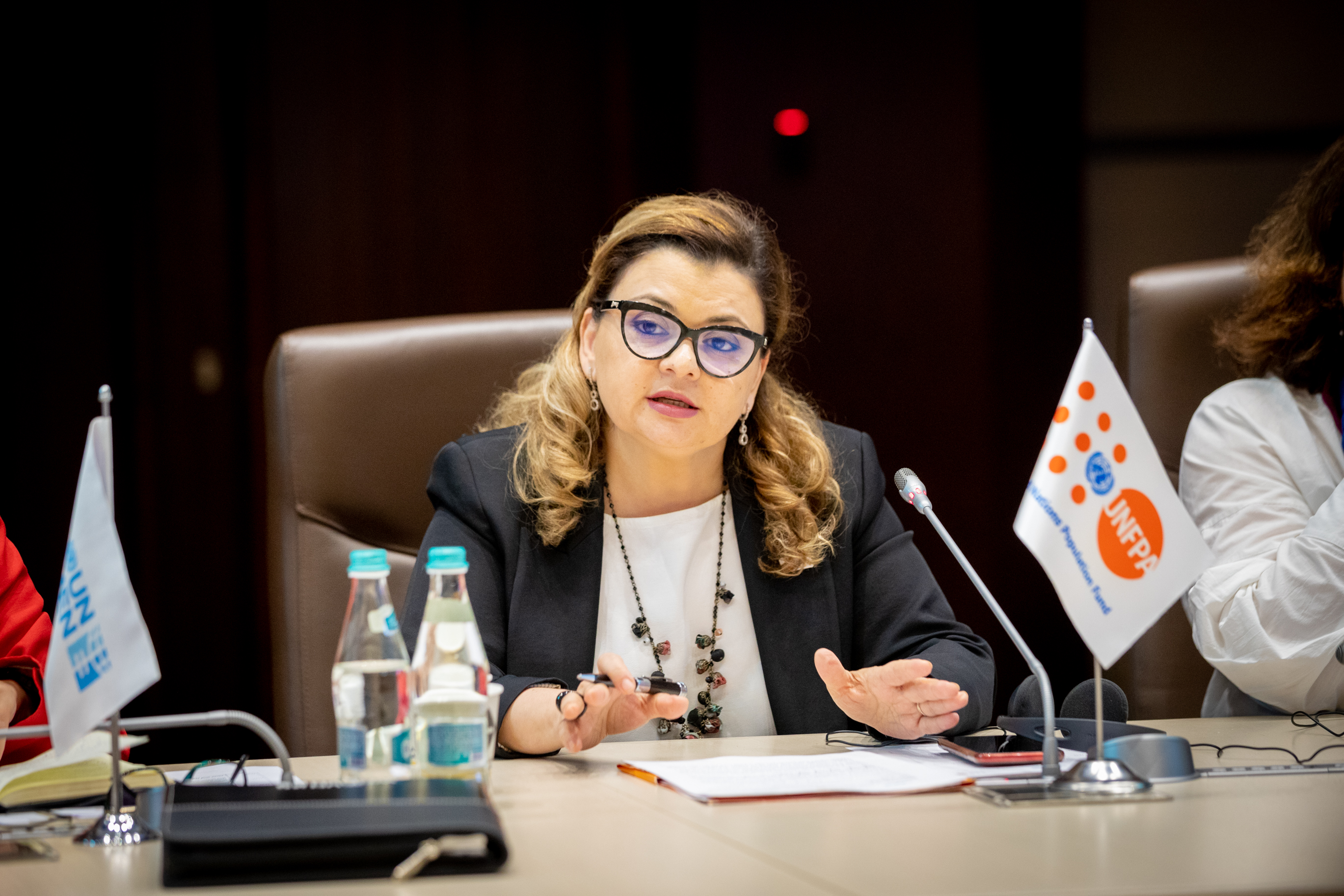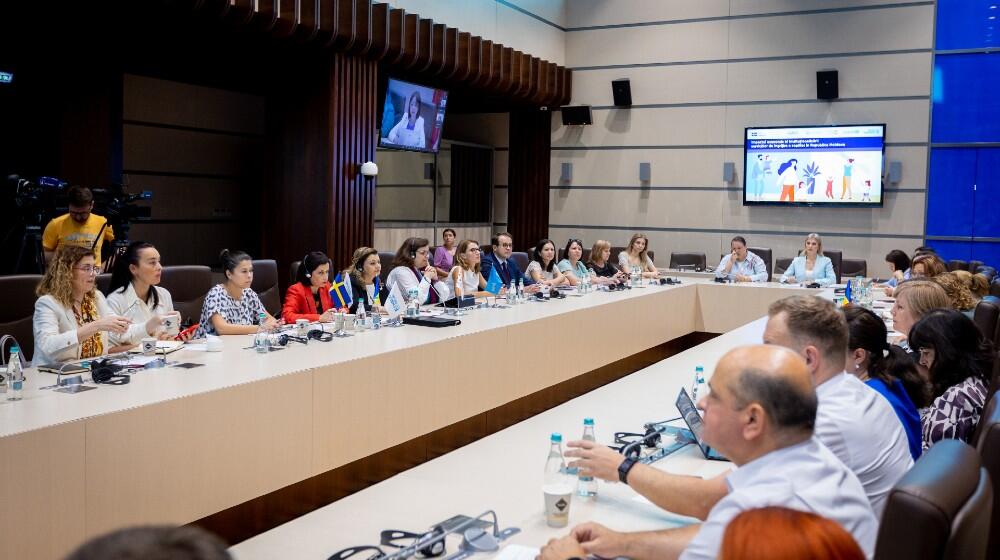In the Republic of Moldova, childcare is a complex challenge, and many parents encounter difficulties in accessing quality services to ensure adequate care for their children. The insufficiency of childcare services has a significant impact on women's participation in the labor market and generates economic and social inequalities. Moreover, it limits the rights of women and couples to have the number of children they want and to balance their personal and professional lives.
To address this problem, today, July 19, 2023, in the premises of the Parliament of the Republic of Moldova, an event dedicated to the consolidation of childcare services was organized. It provided a platform for discussion and collaboration between Government representatives, members of civil society, service providers, development partners and experts in the field.
During the event, the „Study on the economic impact of the institutionalization of childcare services in the Republic of Moldova” was presented. Its main purpose is to provide relevant data on the costs and benefits of institutionalizing childcare services, with a focus on supporting the development and implementation of the National Underage of 3 Childcare Program, legislative and policy changes on family-friendly facilities in the public and private sectors.
Dominika Stojanoska, UN Women Moldova country representative, noted:
„Availability and accessibility of childcare services are essential for women to fully benefit from professional opportunities and to eliminate economic and social inequalities. We are committed to further contribute to the development and diversification of childcare services and to provide women with opportunities for economic development and financial independence. Cross-sector collaboration and the joint effort of all stakeholders play a crucial role in this process, and the results obtained will bring lasting benefits to the whole society".
According to Nigina Abaszada, UNFPA Moldova Resident Representative, family-friendly policies and childcare services are essential in supporting women and men to realize their fertility intentions. They will reduce inequalities in the distribution of housework, which is mostly carried out by women, and strengthen gender equality.

„UNFPA studies show that, in the Republic of Moldova, people want to have 3 children, but in reality they have 1 child, maximum two. This happens for various reasons, including the reduced opportunities for women to be able to combine motherhood with professional duties. By investing in equal conditions for women and men at work and family-friendly policies, we support the choice for people's desired fertility and the country's demographic resilience", said Nigina Abaszada, UNFPA Moldova Resident Representative.
„Family-friendly facilities must target both mothers and fathers. The latter must feel comfortable in benefiting from the respective policies without fear of being discriminated at work, and employers must provide working mothers with the necessary conditions to be able to combine professional and family life", said Maha Damaj, UNICEF Country Representative in the Republic of Moldova.
The study on the economic impact of the institutionalization of childcare services in the Republic of Moldova brought important conclusions to the fore. Increased availability of these services was found to have a positive impact on women's labor market participation, reducing the number of mothers working in low-paid jobs. Investment in childcare services has been identified as a driver of economic growth and will generate additional tax revenue. Availability of childcare services has also been associated with increased birth rates.
By providing increased access to childcare services, we will create an environment in which women can achieve their professional potential and balance responsibilities, thereby helping to promote gender equality and the development of a fair and prosperous society.
The study was carried out by Cambridge Econometrics in collaboration with CIVITTA, at the initiative of UN Women, UNFPA and UNICEF, with the financial support of the Austrian Development Agency (ADA) and Sweden.


